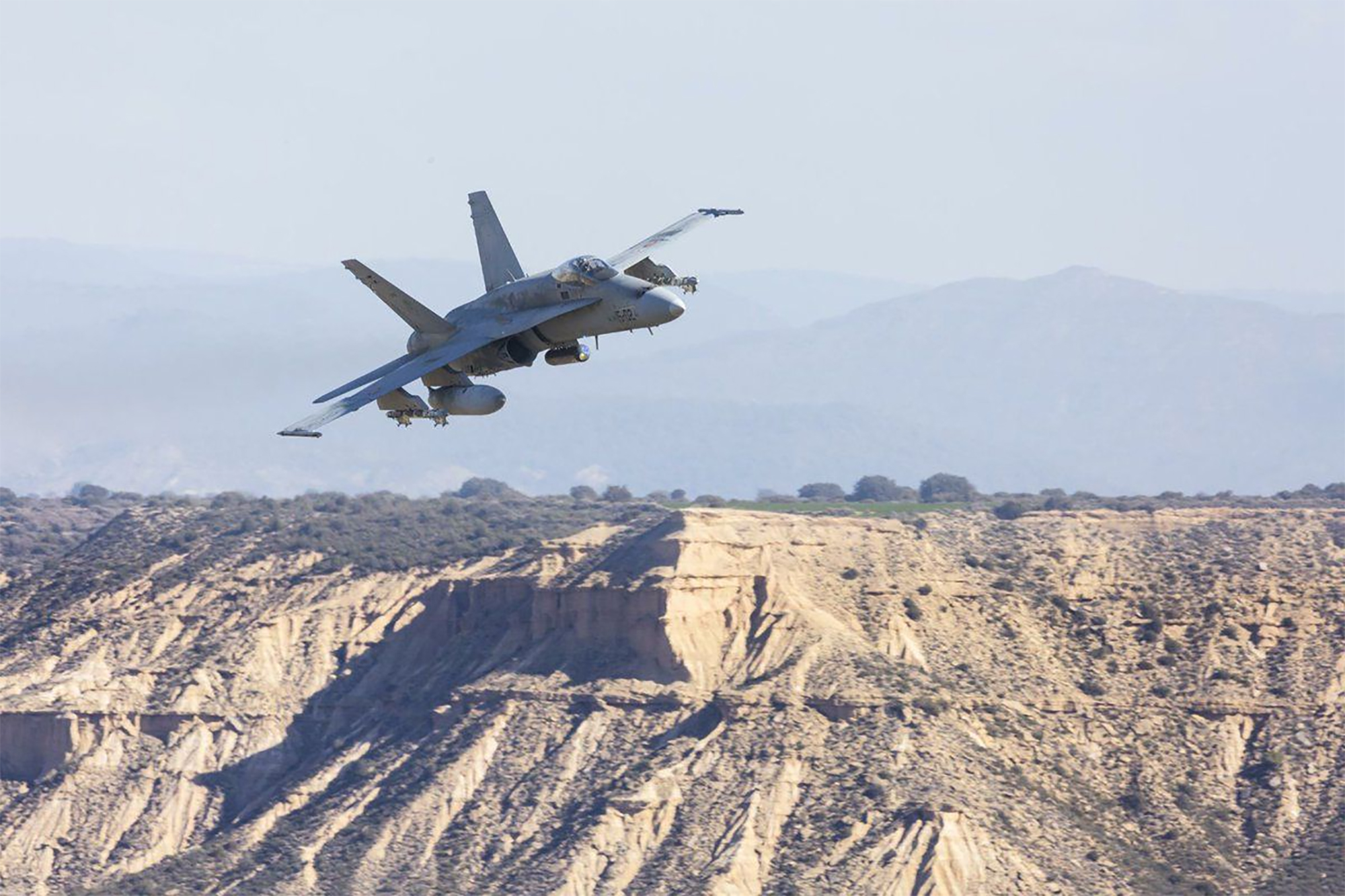The dark business of the arms industry in light
- Why does the Aperribay family, linked to the stone quarries sector, enter the arms industry? How has a small company such as SAPA survived since then in the wider sector? What support have you had in institutions or parties? What are the hidden faces of the tree business? These questions were the starting point of Vitoria when the antimilitarist and antimilitarist groups HD platforms began to investigate the performance of the SAPA Group and the Aperribay family. And along the way, they've found more information and traps than they expected, because they've had to turn what they represented as an agile report into a very intense book. The Aperribay SAPA. The war begins here (SAPA of the Aperribayes. The war starts here) summarizes in the following pages what the research gathers.

Although the SAPA [Sociedad Limitada Placencia de las Armas] has five centuries of history, the investigation begins in 1985, when it takes the direction of the company Joaquín Aperribay Elosua. SAPA, in the midst of the crisis since 1981, declared losses in 1982 for the first time in history, but in 1984 a significant capital increase was approved, becoming the main shareholder of Joaquín Aperribay. The book that was part of a short space of time is called the “hard core” of the new SAPA cycle: Joaquín Aperribay Elosua; his son Jokin and Ibon Aperribay Bedialauneta; Enrique Falco Carrión [member of a family of noble origin]; Alejandro de Calonje Hoces [member of a military and military family]; and Gabriel Peña Aranda.
Joaquín Aperribay and the Transition
Probably the son Jokin is the best known member of the citizen family Aperribay, for being president of the football team of the Real Sociedad, but the curriculum of his father Joaquín is no less: businessman of stone quarries, son vice-president of the Real before the presidency, mayor of Deba in 1967-76. and in the political sphere he owns a wide network of relations villa (Juan Martín Maria Miguel
How did Aperribay manage to take over SAPA and resurrect that small, weak company? According to the authors, Aperribay was “given” SAPA “in payment of favors to the Government of Spain during the Transition”. In particular, because of the efforts made in the area of the Basque conflict, prisoners and refugees through their extensive network of relations. According to this hypothesis, the support received would be, firstly, financing to obtain money to become a main shareholder and, secondly, securing from the Spanish Ministry of Defence the demands of the arms company.
"One of the pillars of the business strategy would be 'the creation and conservation of a wide and diverse network of political sponsors'"
Economic development of SAPA
SAPA will soon be strengthened by new owners, mainly thanks to the company’s modernization plan and the demands of the Spanish Ministry of Defence. In the 2000s the company embarked on a new phase of transformation, already led by the son of Joaquín, Jokin and Ibon: The SAPA Group was set up, consisting of several companies created for this purpose and with different functions (e.g. the company Centre of Excellence PID, dedicated to military R & D, founded in 2002). In the decade of 2010, there is a tendency to do business outside the Spanish state: If in 2015 exports were only 0.82% of total billing, by 2020 they are more than half, 60.73%.
The SAPA for the 2020 decade is technically known as the “consolidated group”, consisting of nine companies. The property is owned by Aperribay in 72% (18% by Father Joaquín and his sons Jokin, Ibon and Mari Iciar). In addition, the group has been part of several temporary joint ventures (UTE) with or without shares of more companies related to large corruption cases. For example, in 2017 the Government of Spain decided to liquidate the arms company Defex, among other things because the National Court had two procedures open. One of them accused the company’s management of having charged more than EUR 20 million in illegal fees for the arms trade in Cameroon, Saudi Arabia, Egypt and Brazil. Defex was a public company in 51%. In the private sector, SAPA owned 8.16% of the shares, at that time Ibon Aperribay was a member of the board of directors and previously were directors Joaquín and Jokin Aperribay.
In 2020 SAPA was the Spanish State’s 9th company in sales and in the period 2018-2020 it declared a profit of 10,806,313 euros. At the beginning of the decade, the company, made up of so many companies and moving tens of millions of euros, had a total of 191 workers, a fact that the anti-militarists stress, since they are the jobs that generate one of the main arguments for not harming the arms industry.
| Jokin Aperribay in the direction of the largest Spanish arms company |
|---|
Since 23 June, Jokin Aperribay Bedialauneta has been President of the Real Sociedad and a member of the SAPA Directorate of the INDRA Board of Directors. SAPA has invested about 120 million euros since September 2021 to obtain a seat on the board of the main Spanish shipowner, acquiring 8% of the shares. INDRA has 51,000 workers in dozens of countries around the world and is listed in IBEX 35. According to the Centre Delás peace investigation group, INDRA’s main client is the Spanish Army, but it is directly involved in the production of weapons that Saudi Arabia uses against Yemen’s civilians in various global conflicts. It is also one of the main beneficiaries of European border militarisation policies. It deals with the construction and maintenance of barriers, such as Ceuta and Melilla, developing cutting-edge movement control technologies. |
‘Conquerors’
As an example of SAPA, the book studies and explains ways of doing business in the arms industry in general. In the SAPA strategy, two pillars stand out: a political relationship as broad as possible and the indispensable role of the so-called “conquerors” by their authors.
Purchasers are persons who obtain contracts, advantages or information through their relationships, networks and knowledge in the public and private sectors of arms. This function is also related to the phenomenon of revolving doors, since they are people who have on many occasions occupied very important positions in the public sphere and are subsequently fictional by private companies in the arms industry.
After taking over authority, Joaquín Aperribay incorporated Gabriel Peña Aranda into SAPA's board of directors, political positions in Franco's regime, members of management boards of public armaments companies, or working as an engineer in the development of new weapons. According to the book, the witness was taken by Pedro Morenés in 2002 when Peña Aranda died. Morenés was counselor in several private armoury companies and Spanish defense minister with the PP, among others. The book relates some striking decisions in favor of SAPA with the interventions of the State, such as the award of non-competitive contracts or the modifications in the conditions of public loans.
.jpg)
Political support
The second pillar of the business strategy would be “to create and maintain a broad and diverse network of political sponsorships”, either directly with parties or politicians or with the institutions that manage them. From the reading it can be deduced that the greater proximity occurs with PP, PSE and PNV, but also the agreements of EH Bildu with SAPA in Soraluze and Andoain in relation to the company's land recalifications are mentioned. The subsidies and loans received by SAPA (and the arms industry in general), together with Basque, Spanish and European institutions, are a consequence and an example of this comprehensive protection.
The book has carried out an exhaustive five-year analysis 2008-2013, “the time of greatest impact of the previous economic crisis”, and although it assures that the real data are larger, it puts on the table the following numbers: SAPA received almost EUR 37 million in direct subsidies or in debt written off; just over EUR 45 million in guarantees or préstamos.La protection,
collaboration or complicity of the arms industry go further. In education, for example, they offer their students the possibility to practice in the R&D company of SAPA, the UPV/EHU, the University of Deusto, the University of Mondragón or the University of Navarra of Opus Dei. Or, in the field of the media, most of them cooperate with the laundering of the armory and the concealment of information that could be a source of scandal.
.jpg)
Anti-military Ists EH (194 pages).
“Rare cases” shows impunity
The book devotes a full section to so-called “rare cases”. The authors have collected the measures that the institutions have taken for the benefit of SAPA or the most denounceable legal violations that the company has committed: the leading organizations are diverse and the authors consider them an example of impunity of the armero sector, not an exception. Here are some of them.
The company Arrola, linked to the Aperribay family and SAPA, was sentenced by the Council of Gipuzkoa to the penalty of EUR 12 million during the legislature in which EH Bildu ruled, accusing various frauds. “At last, then [SAPA] failed its broad [political] relations,” the book says.
Jumping to the state, in 2011 SAPA received a 30 million loan from the Spanish government to develop a tool for military and civilian vehicles. In 2019 the Government acknowledged that the tool had only military application, that is, that SAPA did not comply with the contract, but nevertheless not only maintained the credit, but also exempted it from paying interest and extended the depreciation period, with a “gift” to the company of 21 million euros. Previously, in 2016, the Spanish Ministry of Defence granted SAPA an additional €43.6 million for the Leopard 2E fighting vehicle program, although the Spanish Court of Auditors stated that there was no reason for this.
In the Basque Country, in 2015 the Attorney General of Álava filed a criminal complaint against those responsible for the electric car of the City, one of the most famous cases of corruption in recent decades. SAPA was involved in the case and the prosecution called, inter alia, for the arms company to be sanctioned as an “accomplice” of the fraud. In the end there was no punishment for anyone, although millions of euros were “lost”.
At the municipal level, the book collects the steps of the “pelotazos” issued by SAPA recalising the lands it has in Andoain and Soraluze, threatening the municipalities that if their conditions are not accepted the company will go to another municipality.
.jpg)
Surprising investments in the past year
Although the opposite of what has been read so far could be expected, SAPA has reached the beginning of the decade in a very weak economic situation. He left a big business he announced in the United States and left a big hole, in the coming years he has to return loans for several million already received or pay what the Gipuzkoan Treasury asked him for. “In 2021, the cost reduction or containment plan will continue to make the company more competitive,” in the Group’s 2020 Management Report. Otherwise: Since September 2021, it has invested EUR 210 million in three shifts, dusty in the Spanish armer sector.
In September 2021, SAPA acquired 5% of the shares of the Basque arms company ITP Aero for EUR 80 million. In December it appropriated 5% of INDRA, the state's largest arms industry, for 90 million euros. Six months later, in May 2022, SAPA applied for Jokin Aperribay on the INDRA board of directors. But he refused because one of the conditions is that 7.5 percent of the shares. It then acquired about 3% of INDRA's shares for about 40 million. The INDRA Board of Directors finally approved Aperribay as a member at a conflicting session in which opponents of the operation questioned its legality. The main shareholder of INDRA is the State itself through the public company SEPI. Amber Capital is another major shareholder in the HURRY media group, in turn. These are the shareholders who have driven the controversial designation of Aperribay. The CNMV will have the final say on the matter. The book does not record what happened since May, since it was already in print, but in the hypothesis he advanced in the book has been confirmed by Vitoria after the antimilitarist group:
“Both SAPA and INDRA movements have to do with a major operation: Consolidation of a large Spanish military industrial pole in the INDRA environment. In addition to the companies SAPA (military vehicles) and ITP (aeronautics), the aim will be to involve more military companies from other sectors in order not to have such a secondary role in Europe’s major military programmes in the coming years.” This project was put forward some time ago by Pedro Morenés, Minister of Defence, and now the antimilitarists believe that Margarita Robles has taken it on board. It must be borne in mind that the European states have recently committed themselves to multiplying military spending in NATO.
For its part, SAPA would try to gain importance in this pole, according to the authors of the book: “Time will clarify the issue, but our impression is that SAPA’s ambition of Aperribay (...) is to continue to gain more importance in the structure of the Spanish pole of merchants of current death.”
| Threatened by the book Ibon Aperribay, head of SAPA? |
|---|
The Aperribay SAPA. The book La guerra begins here was presented on Friday of May by the EH platform in Donostia, in the morning in Koldo Mitxelena and in the afternoon in the Kaxilda library. The drawer denounced that the following day a man entered the bookstore and approached a worker, pointing to the cover of the book: “I’m from the photo.” Although it could not be fully certified, Kaxilina concluded that it was Ibon Aperribay. Before leaving, he told the worker: “Sorry for you, you have a nice place, I have been here on your terrace, but you are wrong to let this presentation be done in your space. Yes, I am sorry for you.’ Kaxilarra denounced the “grave” event. From reading the book it follows that the Aperribay family has a lot of power. Taking into account the contents of the book and the fact of Kaxilda, we have asked Antonio Escalante of the Vitoria-Gasteiz group who has prepared the book, if the publication may pose any risk to them. “We did appreciate it, but we had no doubt to leave. We have learned from other experiences that the book or our opposition would give the bellows to the book. On the other hand, everything we say is documented. But yes, they have a lot of power, and seeing what Ibon Aperribay did in Kaxilda, it can happen.” |
Executable alternative
Anti-militarism has long proposed an alternative for arms companies: to replace military production with civilian production of social benefit, thus maintaining the jobs of workers when they leave the “death market”. In the case of SAPA, reconversion would be particularly simple, according to the book.
SAPA has regularly made parts for vehicles, flanges or, in particular, textile machinery. And not in anecdotal size. In the late 1960s, the turnover of civilian production surpassed the military, as did the turnover of the telares in 1995. Civilian production is profitable -- but military production is much more. Among other things, as all previous research has shown, because it is one of the most subsidised industries, and because it does business with a lot of impunity and few scruples.
The key, the society
“While in the towns and cities of Euskal Herria there are arms factories, military research in our educational centers, the public institutions that subsidize the death industry, the political parties that accept it, the unions that demand jobs and the merchants of death that benefit from their trade, we can say clearly: The war begins here,” the antimilitarists say in the end. How to break the vicious circle? As wars start “here”, they propose that the end be “from”: “From here we can do a real work of rejection and objection until the end of wars, in Ukraine or anywhere else in the world.”
| SAPA MILITARY PRODUCTION |
Main production areas: Participation in the production of fighting vehicles:Chain vehicle for fighting Leopard Artillery production: |
| SAPA DOES BUSINESS WITH AT LEAST THE FOLLOWING STATES |
| Saudi Arabia, Germany, Argentina, Egypt, Greece, India, Jordan, Oman, Sweden, Switzerland, Taiwan, Turkey, Spain. |
| ARMERIA, DOPED INDUSTRY |
In direct grants or debt write-off: 36,832,947,46 € In guarantees or loans: 45.880.139 € |
To conclude the previous article, we put on the table an objective that Zedarria and the Basque Government do not want to address when talking about production for waste and war in the Basque Country (EHXGE, or military industry): That there is no war in the world that feeds on... [+]
A few weeks ago, the President of the European Union, Ursula von der Leyen, reported on the need for military spending of eight hundred billion euros. This expenditure is said to be in response to a military threat to which Europe is exposed, and it has been confirmed that there... [+]
As we explained in our book on adaptation, in view of the decline in European military spending since the late 1980s of the last century, at the beginning of the 21st century European death traders decided to organize themselves and structured themselves as lobbies imitating the... [+]
In recent weeks and months, all kinds of political, economic and business organizations have been constantly raising the sounds of war. But what if the purpose of this buzzing noise was not to allow us to think clearly and the fear was to confuse our analysis? Let’s try to... [+]
At the beginning of the year, the Zedarria group publicly supported the "opening of the debate" on the "defense" industry (as well as the nuclear industry), to which the Basque Government has immediately joined. First, through Mikel Torres, Vice President and Economic Counselor, who... [+]
Ukrainaren ondoren Polonia?
Europar Batasunak Ukrainako gerra hauspotu du Kiev armaz hornituta, eta menia oraindik airean delarik, gerraren zikloan murgilduta dago bete-betean. Hori bai, bere diskurtsoa modulatzen ari da, eta gero eta gehiago hitz egiten du balizko su-etenaz... [+]
Bizitza erdigunean jartzeko abagunea ikusi genuen feministok zein ekologistok Covid-19 pandemia garaian. Ez ginen inozoak, bagenekien boteretsuak eta herritar asko gustura itzuliko zirela betiko normaltasunera. Bereziki, konfinamendu samurra pasa zutenak haien txaletetan edo... [+]
At the end of June we finished the first parts of the book Conversión de la industria militar en Euskal Herria para no fabricar más guerras (Adaptation of the arms industry in the Basque Country so as not to create more wars) La guerra is coming! It explores and investigates... [+]
Historia errepikatzen dela idatzi zuen Marxek, “lehenik tragedia gisa, gero fartsa moduan”. Armagintzaren eta militarismoaren inguruan errepikapen hutsa ez, espiralean goraka doan buklea ari gara bizitzen, fartsatik asko duena, eta tragedian amaitzeko gero eta aukera... [+]
“Ez dugu gerraren aurrean etsi nahi, ez dugulako hilerrietako bakea nahi”, dio manifestuak, eta agintariei irtenbide politiko baten alde lanean jartzeko eskatu diete. Sinatzaileen artean daude Delàs institutua, Gernika Gogoratuz edo Ongi Etorri Errefuxiatuak... [+]











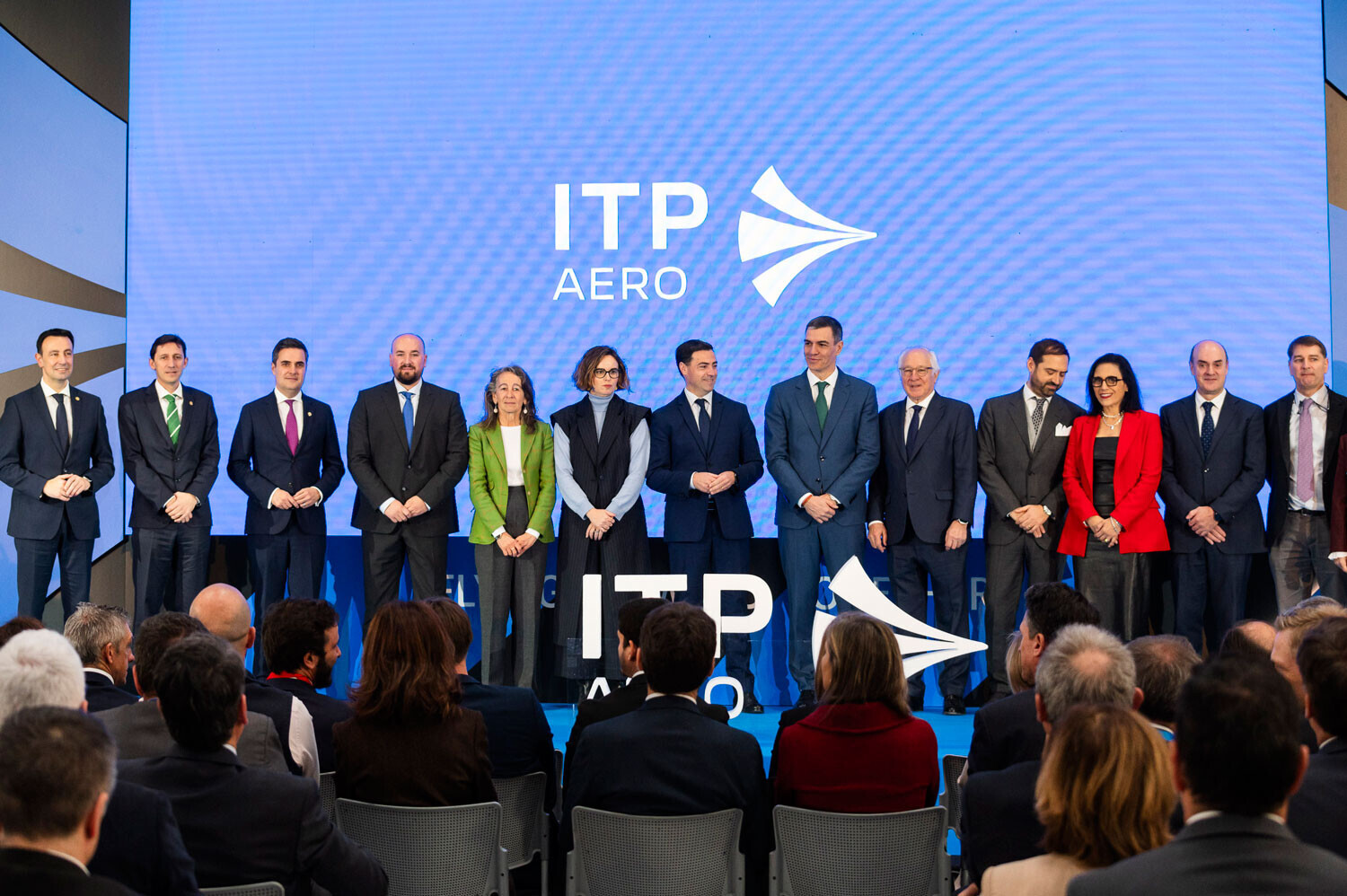

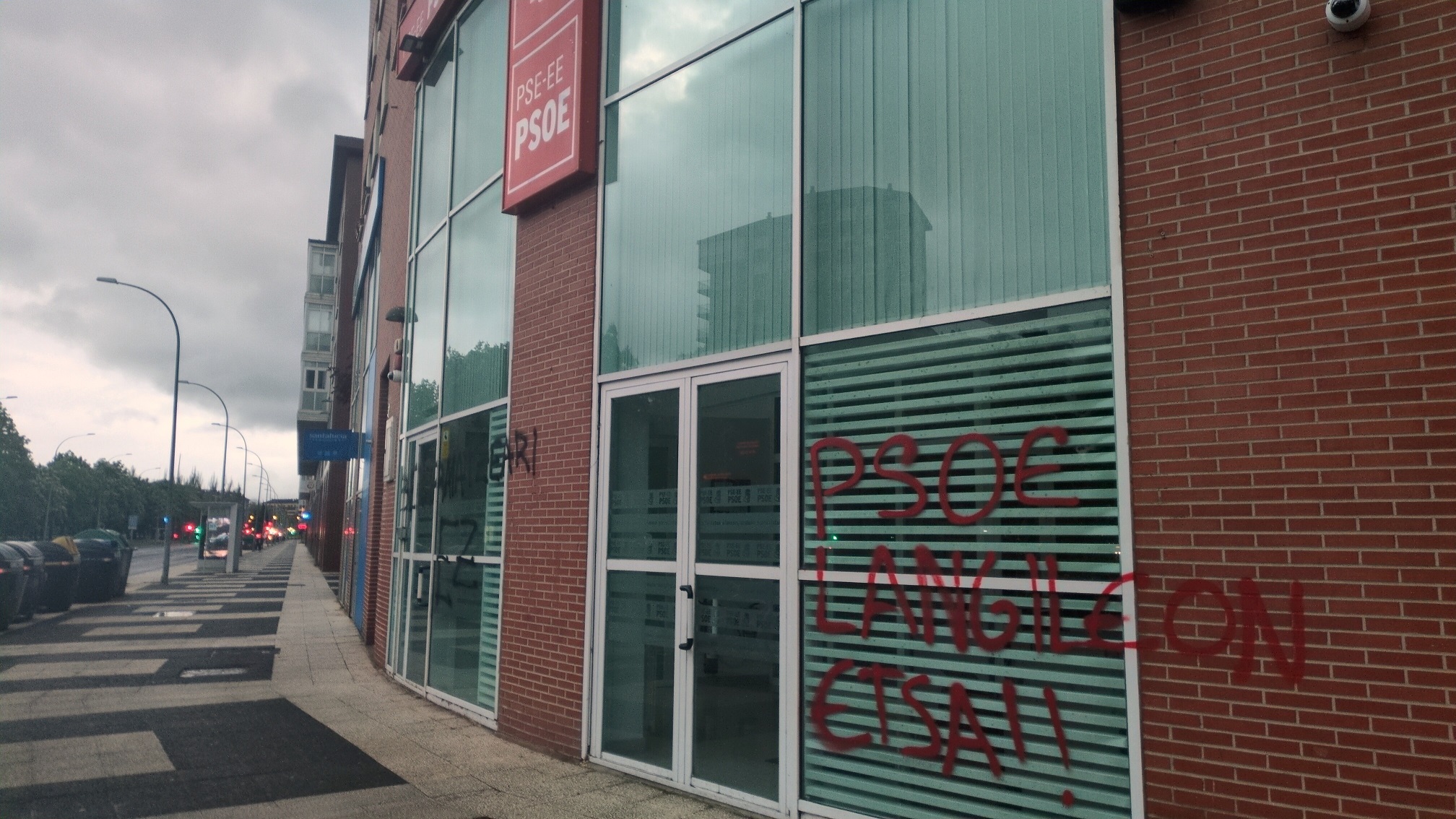
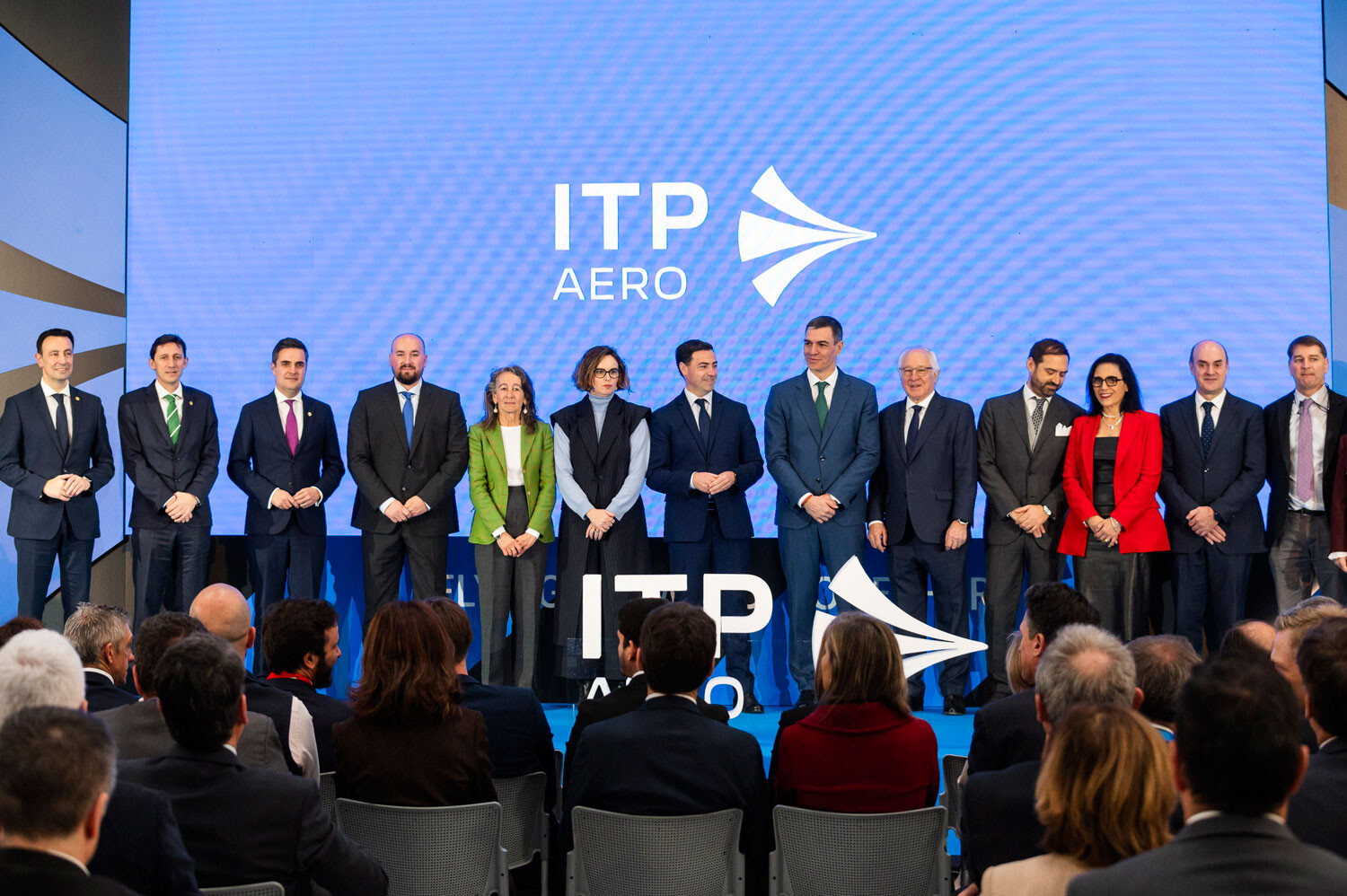
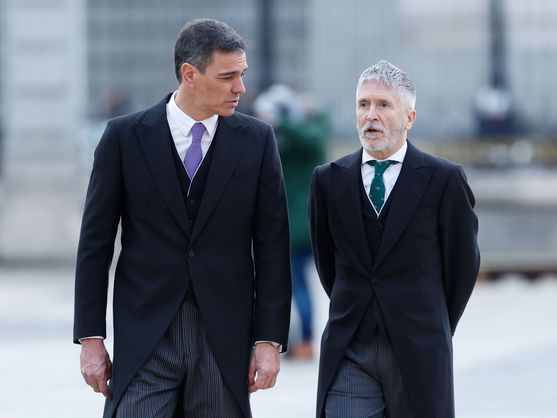
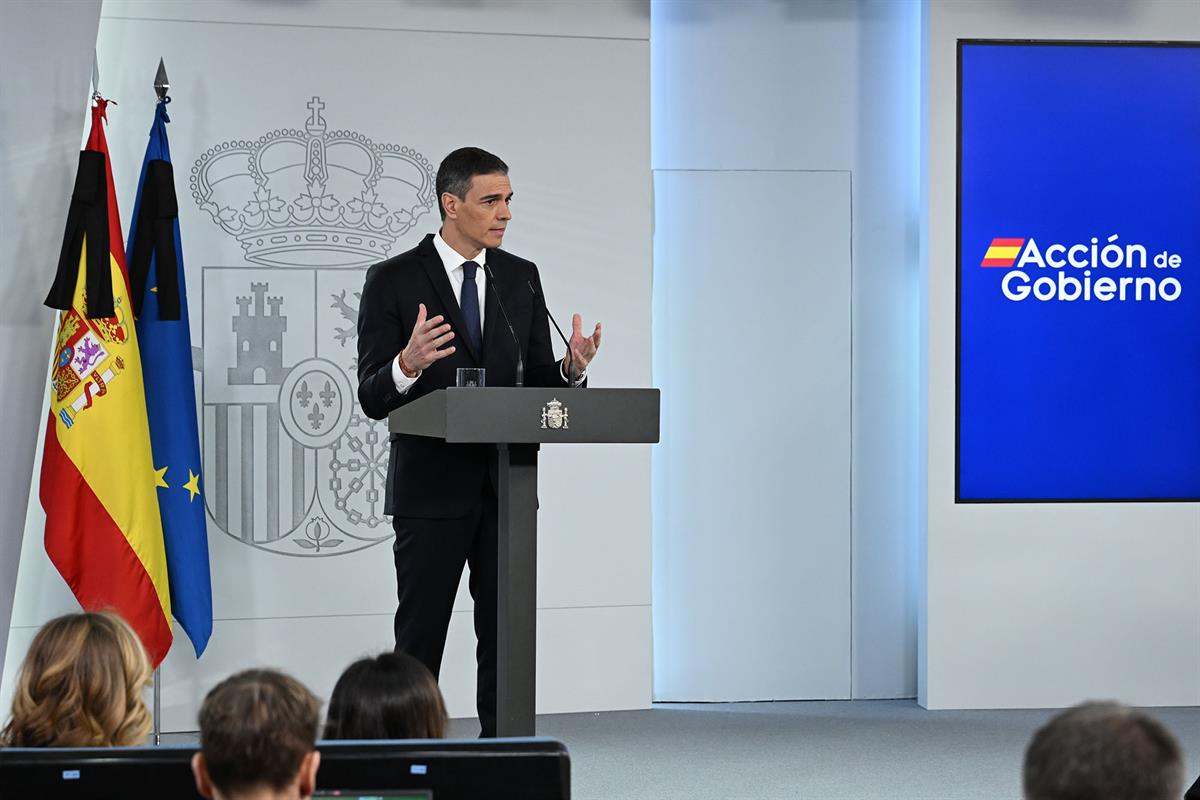
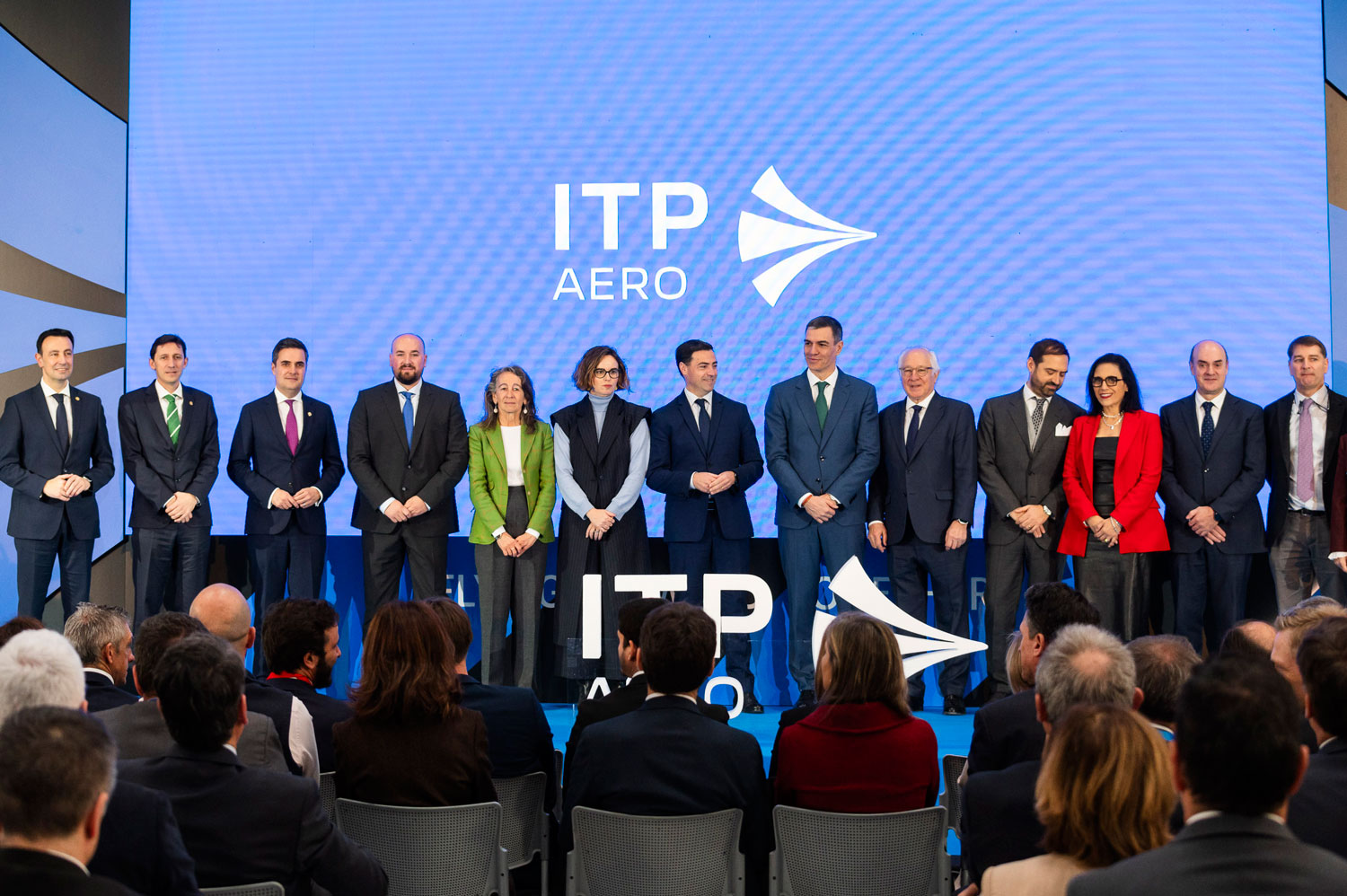

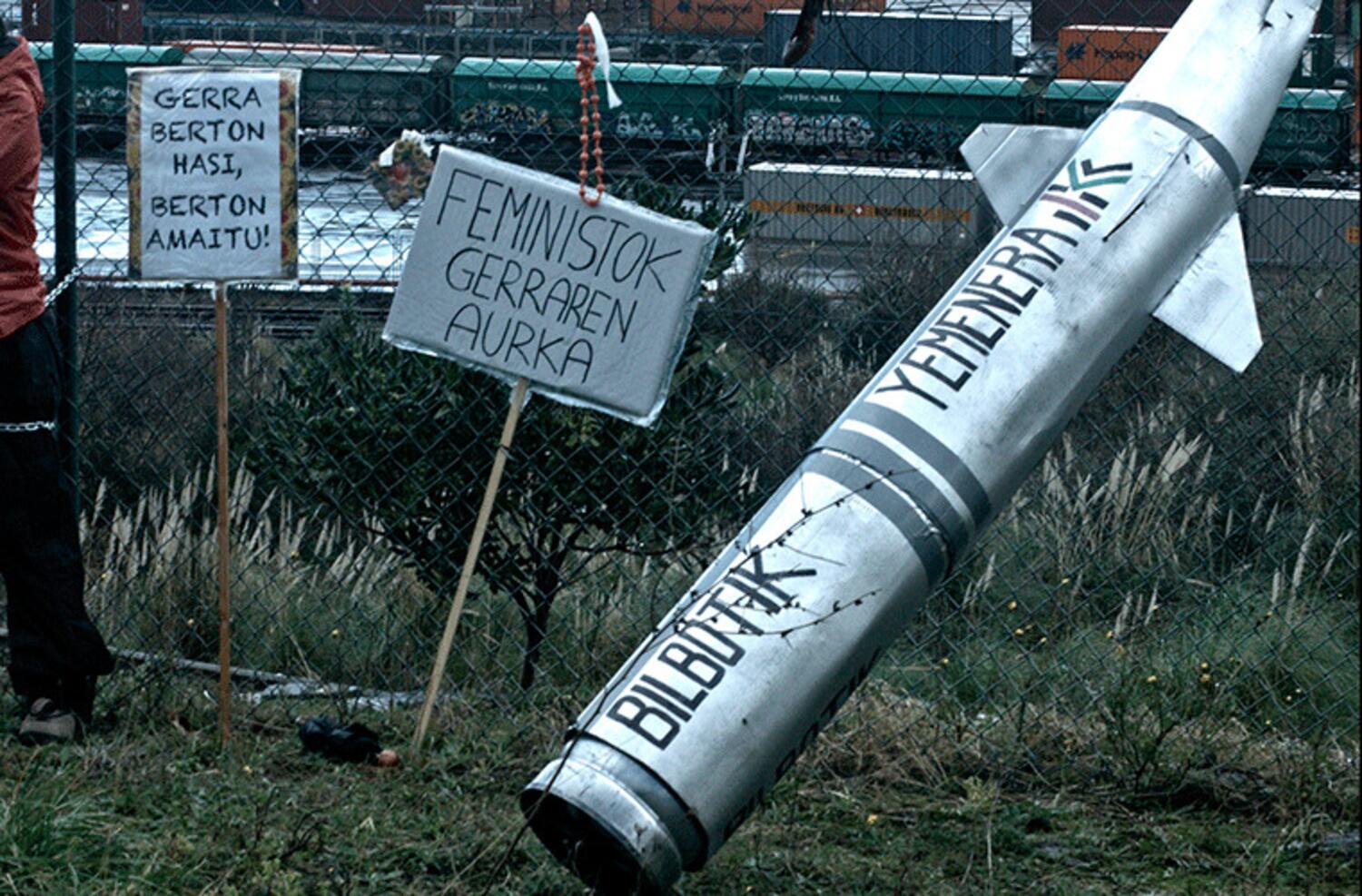

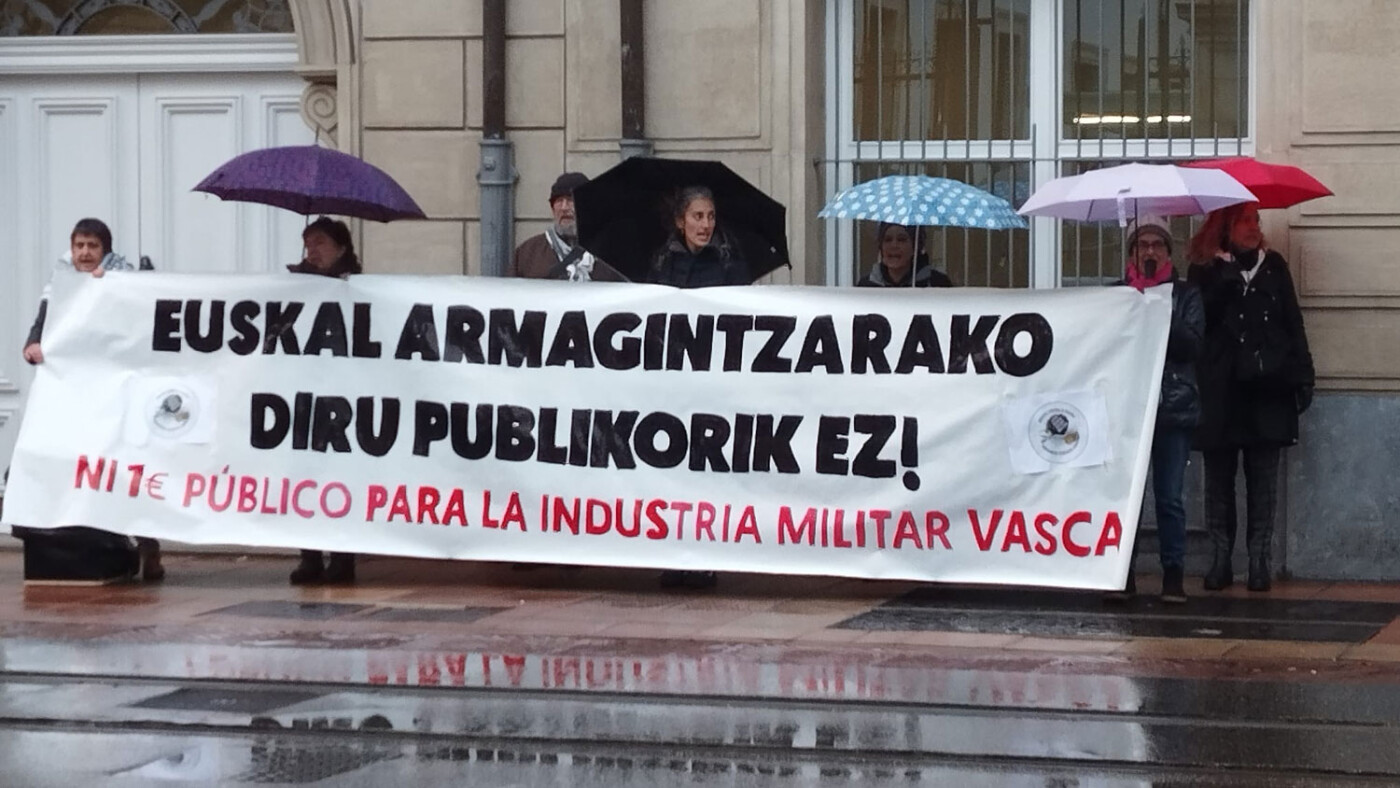
.jpg)

